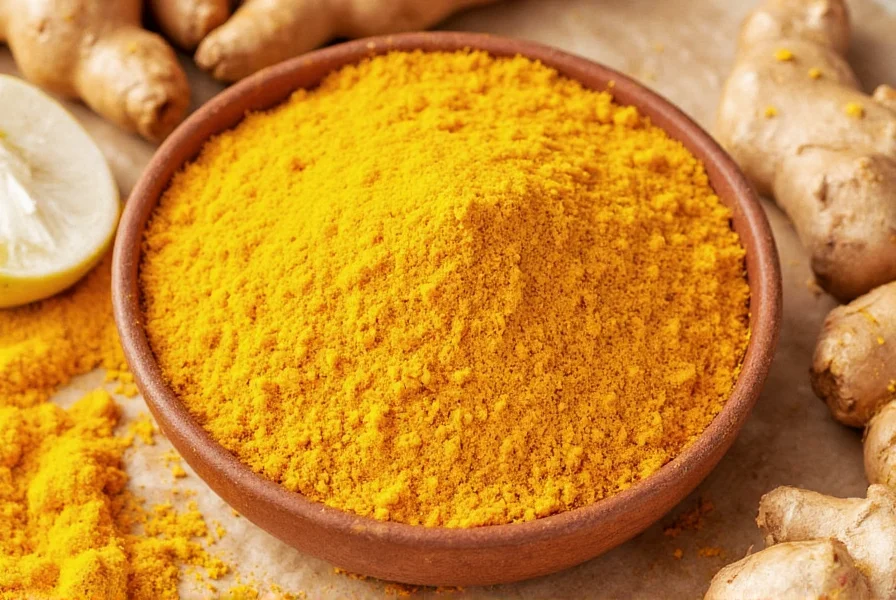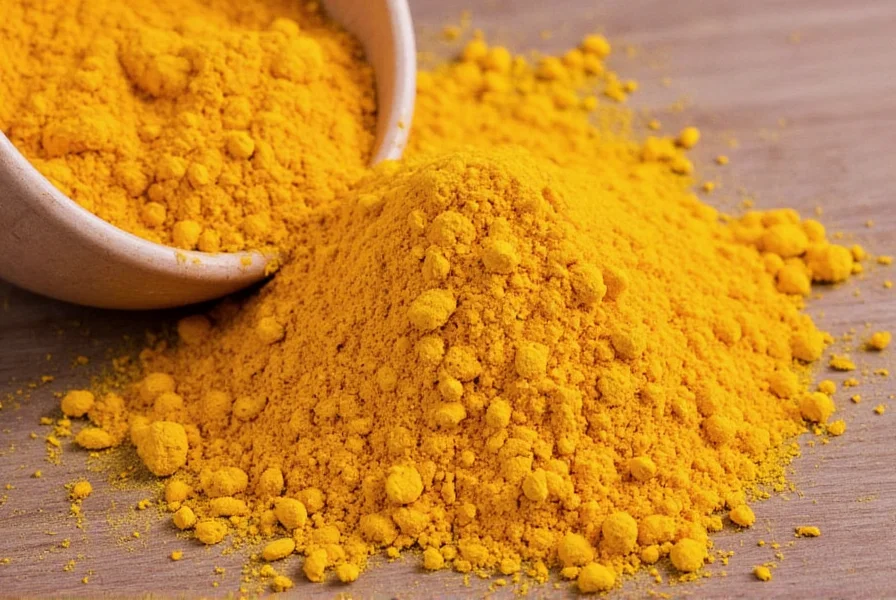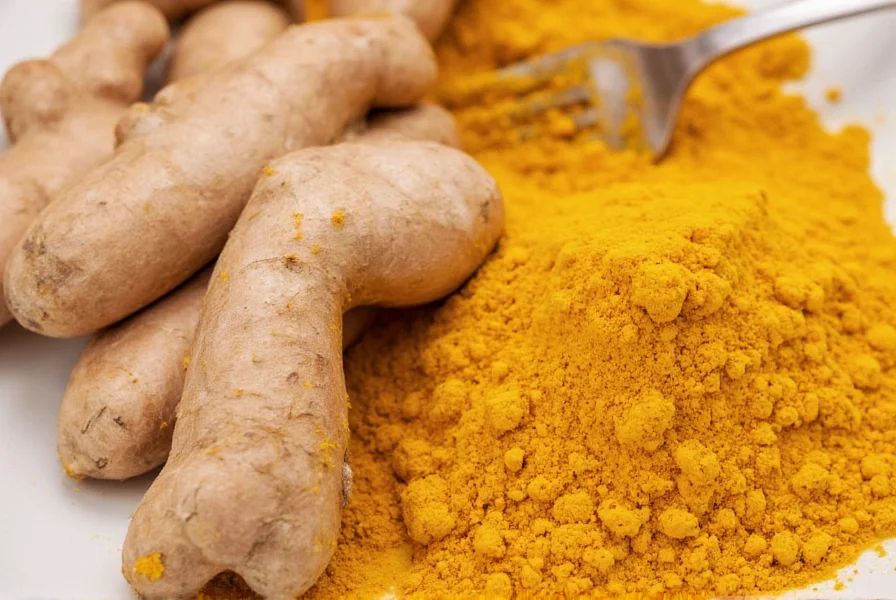For centuries, traditional medicine systems across Asia have combined turmeric and ginger for their healing properties. Modern science is now validating many of these ancient practices, revealing how these golden-hued spices work together to support human health. This comprehensive guide examines the evidence-based benefits of using turmeric with ginger, separating established facts from popular claims.
The Science Behind Turmeric and Ginger
Turmeric contains curcumin, a polyphenol responsible for its vibrant yellow color and most health benefits. Ginger's primary active compounds are gingerols and shogaols. While both spices offer individual benefits, their combination creates a synergistic effect that enhances their therapeutic potential.
Research published in the Journal of Medicinal Food demonstrates that curcumin and gingerols target different inflammatory pathways, potentially providing broader protection against chronic inflammation than either compound alone. This complementary action makes the turmeric with ginger combination particularly valuable for managing conditions where inflammation plays a key role.

Key Health Benefits of Turmeric with Ginger
1. Enhanced Anti-Inflammatory Effects
The turmeric and ginger anti-inflammatory benefits represent their most well-documented advantage. Chronic inflammation contributes to numerous health conditions including arthritis, heart disease, and metabolic disorders. A 2020 review in Phytotherapy Research found that combining these spices significantly reduced inflammatory markers like C-reactive protein and interleukin-6 more effectively than either spice alone.
This synergistic anti-inflammatory action makes the turmeric ginger combination particularly beneficial for people with osteoarthritis. Clinical trials show participants experienced greater pain relief and improved mobility when using both spices compared to placebo or single-spice interventions.
2. Improved Digestive Health
Turmeric ginger tea benefits for digestion have been recognized in Ayurvedic medicine for centuries. Modern research supports these traditional uses, showing that ginger stimulates digestive enzymes while turmeric supports bile production. Together, they can help alleviate symptoms of indigestion, bloating, and irritable bowel syndrome.
A randomized controlled trial published in Food Science & Nutrition found that participants with functional dyspepsia who consumed a turmeric-ginger formulation experienced significantly greater symptom relief than those using conventional medications alone.
3. Enhanced Antioxidant Protection
The combination provides a broader spectrum of antioxidant protection than either spice alone. Curcumin neutralizes multiple types of free radicals, while gingerols protect against lipid peroxidation. This complementary antioxidant action helps protect cells from oxidative damage that contributes to aging and chronic disease.
| Benefit | Scientific Support Level | Recommended Daily Intake |
|---|---|---|
| Inflammation reduction | Strong (multiple RCTs) | 500-1500mg curcumin + 1-2g ginger |
| Digestive support | Moderate (several studies) | 250-500mg curcumin + 1g ginger |
| Joint pain relief | Moderate to strong | 1000mg curcumin + 2g ginger |
| Antioxidant protection | Strong (in vitro evidence) | 500mg curcumin + 1g ginger |
Maximizing the Benefits: How to Combine Turmeric with Ginger
Understanding how to combine turmeric with ginger for maximum benefits requires attention to preparation methods. Curcumin has notoriously poor bioavailability, but certain strategies can enhance absorption:
- Add black pepper: Piperine in black pepper increases curcumin absorption by up to 2,000%. Include at least 1/8 teaspoon with your turmeric-ginger mixture.
- Use healthy fats: Curcumin is fat-soluble. Consume with coconut oil, olive oil, or avocado to improve absorption.
- Apply heat: Gentle heating enhances curcumin solubility. Try simmering turmeric and ginger in milk or broth for golden milk or healing soups.
- Consider timing: For digestive benefits, consume 15-20 minutes before meals. For inflammation management, regular daily intake provides best results.
The best way to take turmeric and ginger for health depends on your specific goals. For acute issues like nausea or indigestion, fresh ginger tea with turmeric may provide quick relief. For chronic inflammation management, standardized supplements offering consistent curcumin doses may be more effective.
Safety Considerations and Potential Interactions
While generally safe when consumed in food amounts, higher therapeutic doses require consideration of potential side effects of turmeric and ginger combination:
- Blood thinning: Both spices have mild anticoagulant properties. Avoid high doses if taking blood thinners like warfarin or before surgery.
- Gallbladder issues: Turmeric may stimulate gallbladder contraction. Those with gallstones should consult a physician.
- Acid reflux: High doses may exacerbate symptoms in sensitive individuals.
- Diabetes medications: Ginger may enhance insulin sensitivity, potentially requiring medication adjustment.
Pregnant women should limit ginger to culinary amounts (under 1g daily) and consult their healthcare provider before using therapeutic doses. Those with bleeding disorders or scheduled surgery should discontinue high-dose use at least two weeks beforehand.

Evidence-Based Recommendations
Based on current scientific evidence, here's how to incorporate turmeric with ginger effectively:
- For general wellness: 1/2 teaspoon turmeric powder + 1/2 teaspoon ginger powder daily in cooking or tea
- For inflammation management: 500-1000mg curcumin (with piperine) + 1-2g ginger daily
- For digestive support: 250-500mg curcumin + 1g ginger 15-20 minutes before meals
- For joint health: 1000mg curcumin (with piperine) + 2g ginger daily
The turmeric ginger supplement dosage recommendations should consider individual health status. Those with inflammatory conditions may benefit from higher doses under medical supervision, while healthy individuals can achieve benefits through culinary use.
Conclusion
The combination of turmeric with ginger represents a powerful natural approach to supporting multiple aspects of health, particularly inflammation management and digestive wellness. While scientific evidence continues to evolve, current research supports many traditional uses of this dynamic duo. For optimal results, focus on proper preparation methods to enhance bioavailability and consult with a healthcare provider if you have specific medical conditions or take medications that might interact.
Remember that while these spices offer significant health benefits, they work best as part of a comprehensive approach to wellness that includes a balanced diet, regular exercise, and appropriate medical care when needed. The scientific evidence for turmeric ginger combination continues to grow, but realistic expectations about their role in health maintenance are essential.
What is the most effective way to consume turmeric with ginger for maximum absorption?
The most effective way to consume turmeric with ginger involves combining them with black pepper and healthy fats. Curcumin (turmeric's active compound) has poor bioavailability on its own, but piperine in black pepper can increase absorption by up to 2,000%. Adding 1/8 teaspoon of black pepper and consuming the mixture with healthy fats like coconut oil or avocado significantly enhances absorption. Heating the spices gently in liquid (as in golden milk) also improves solubility and effectiveness.
How long does it take to experience benefits from regular turmeric and ginger consumption?
The timeframe for experiencing benefits from turmeric with ginger varies by purpose. For digestive relief, effects may be noticed within 30-60 minutes of consumption. For inflammation reduction and joint pain relief, consistent daily use for 4-8 weeks is typically needed to observe significant improvements. Blood marker changes (like reduced CRP levels) may take 6-12 weeks of regular consumption. Individual responses vary based on health status, dosage, and absorption factors.
Can turmeric and ginger help with arthritis symptoms?
Yes, multiple studies indicate that turmeric with ginger can help reduce arthritis symptoms. Research shows the combination significantly decreases pain and improves function in osteoarthritis patients, with effects comparable to some non-steroidal anti-inflammatory drugs (NSAIDs) but with fewer side effects. The anti-inflammatory compounds in both spices target different pathways involved in joint inflammation. For best results, use standardized curcumin extracts (500-1000mg daily with piperine) combined with 1-2g of ginger for at least 8-12 weeks.
Are there any medications that shouldn't be taken with turmeric and ginger?
Yes, turmeric and ginger may interact with certain medications. Both have mild blood-thinning properties, so they shouldn't be combined with anticoagulants like warfarin without medical supervision. Ginger may enhance the effects of diabetes medications, potentially causing low blood sugar. Turmeric might interfere with certain chemotherapy drugs and reduce the effectiveness of medications metabolized by the liver. Always consult your healthcare provider before combining these spices with prescription medications, especially if you take blood thinners, diabetes drugs, or have upcoming surgery.
What's the difference between using fresh versus powdered turmeric and ginger?
Fresh turmeric and ginger contain higher levels of active compounds compared to dried powders, but powders offer more consistent dosing. Fresh ginger contains about 5-6mg of gingerols per gram, while dried ginger powder concentrates these compounds to 20-30mg per gram. Fresh turmeric has about 3-5% curcumin by weight, while turmeric powder contains 2-9%. For therapeutic effects, standardized curcumin supplements provide the most reliable dosing. Culinary use of fresh or powdered forms offers general health benefits, but for specific medical conditions, standardized extracts may be necessary to achieve effective concentrations.











 浙公网安备
33010002000092号
浙公网安备
33010002000092号 浙B2-20120091-4
浙B2-20120091-4